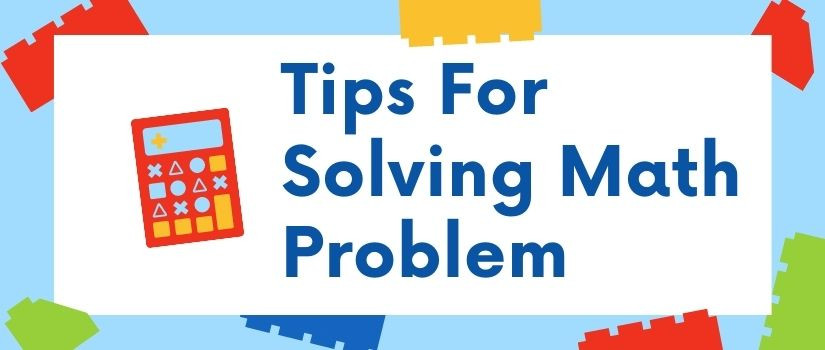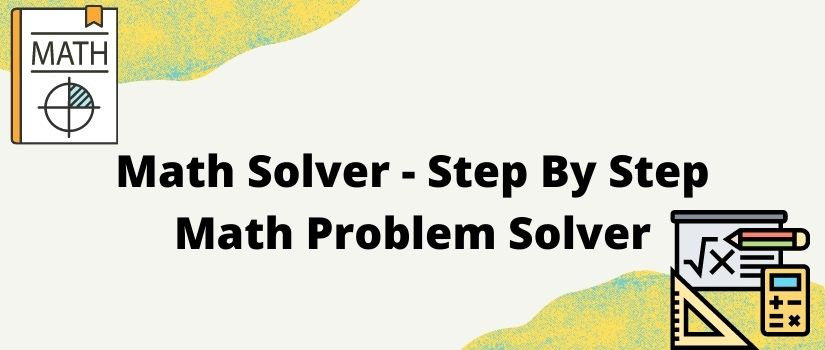Math is one of the core subjects students need to take in GCSE, many students consider it to be a difficult and tough subject. Math is a very important subject and students may have to take them up in their universities as well. This myth about math is always on the students’ minds, which demoralizes them. However, with proper study methods and effort, their grades will definitely improve.
Maths preparation
Here are 5 ways to improve your GCSE maths grade:
Know the syllabus
Go through the syllabus for GCSE maths paper and be thorough with it. You should know what needs to be studied under a topic and what does not need to be studied. Knowing what not to study is as important as the preparation itself.
Many times students waste their precious time on solving a complex problem that may not be included in their syllabus. It is good to work hard but working hard in the right direction is more important. Focus on topics that you need to improve on.
Figure out the maths exam pattern and structure
To ace any exam it is necessary to have a proper understanding of the exam pattern and the structure of the questions that may be asked in the exam. Familiarize yourself with the question pattern of the paper. Figure out the marks distribution, weightage of topics, and types of problems. These may not be absolute but it will definitely give you some idea about the coming GSCE exam paper pattern.
Understand your learning style
Every student has a unique way and ability to learn. Some students understand a concept better with visual aids while some with real-life examples. You can also see which time is suitable for your learning. Some are night owls who are able to study during the night while some are early morning risers. Depending on your suitability, choose your style of learning.
Make a timeline for your study
Preparation for an exam requires a good utilization of time. To get the best of results it is required to have a good plan for your study that will drive you towards success. Make a rough timeline for your study. This is a time-based chart for your GCSE maths exam. Sort out chapters in their order of your learning.
Divide your time and routine according to the study plan you have made. Some chapters may require more time while others may require less, depending on your requirements. This will help you complete the syllabus on time and make room for revision.
Make a revision time period
Revision is as much as important as learning the entire syllabus. You may have done a good amount of hard work in studying for the exam but the revision will help you remember what you have studied better. The key to improving your grades is not only studying efficiently but also revising, this will give students confidence and help to clear any doubts at the last moment.
5 tips to boost your GCSE maths grade is given below:
Make your basics of maths concrete
It is fundamental to have your basic concepts of a subject clear in order to ace the exam in it. Math being a progressive subject requires building concepts on older ones.
Thus, you need to have a clear understanding of the small concepts that will help in building the bigger concepts that will follow. The basics of arithmetic should be on the tip of your fingers. If students do not have a stronghold of the basic arithmetic concepts, they will lose a lot on the marking. In addition, this will help you solve bigger problems with ease and faster.
Understand and learn the maths concepts
Before you jump into solving problems, understand the concept behind it. A clear concept of the chapters that are taught will make you understand the problems better. Understanding is key to improving your subject. When doubtful about any topic or have a question, ask your teacher or friend. Never keep silent even if the doubt may seem silly. Clearing your concepts and doubts are key to doing well in GCSE.
Remember the maths methods
Each problem in math is a unique and different one. Math does not require memorizing the calculations but it requires an understanding of the method. Each type of problem from a particular chapter follows a certain method. Your aim is to be able to identify the method and solve the problem.
For example, algebra requires a unique method whereas simple interest has its own formulas. The key to math is remembering the procedure for every kind of problem. If you know the procedure to solve the problem, your work is almost done.
Calculations that follow procedure are purely arithmetic and do not require memory. Even when you run out of time in the exam and write the procedure without calculating the problem will fetch you a good amount of grades.
Know your weakness
Knowing your weakness is as important as knowing your strengths. Make a list of the question or the type of problems you keep making mistakes. Practice them on a daily basis so that you do not make the same mistakes in the exam. Preventing making any kind of mistake is as important as doing the math questions correctly. These mistakes can be your grade pulling down factor, so it is wise to tackle them beforehand.
Take mock tests
In order to understand where you stand in terms of GCSE standard, it is essential to take a few mock tests. Practice past papers as mock tests too. When doing these mock tests try not to refer to the reference notes or any class notes. Time yourselves and you will know which question requires how much time, this will help you time yourself for the final exam.
These mock tests will help you gauge your level and identify where you need to improve. Mock tests will also help students familiarize with the type of questions asked and give them a taste of what the real exam may be like. It will aid them in preparing for the real exam.
How to get an A in maths GCSE
Given below are top 5 tips to smash GCSE maths to score an A in GCSE maths exam:
Be calm and composed
A calm and composed mind is more efficient to learn and grasp concepts that a panic-stricken one. Many good students miss good grades because they are too nervous about the exam. After learning, so many methods and concepts students may seem anxious.
Especially for maths, one needs to be relaxed and calm to tackle the problem. If you are in the right frame of mind, any type of problem can be solved or at least tackled with proper logic and method.
Motivate yourself
Even intelligent students run out of motivation and do not get good grades. Keep yourself motivated and stick to your study routine. With hard-work and routine schedule, no one can stop you from getting an A in your math paper. The right motivation and diligence will help you ace the maths paper in your GCSE exam.
Improve your memorizing power
To do well in the exam you need to have a good memory, not necessarily memorize the problem but the procedures and formulas have been memorized. Students need to build their memory power and this can be done by repeated practice. Anything done repeatedly stays in our memory. Keep revising concepts and methods until they become second nature to you.
Using other tools to improve maths
Having more than one source of learning will always help you gain a clear picture of a topic. Go online to check videos and lectures that will be helpful. The internet is also a great tool for students to learn and prepare for their exams. It is not possible for the teacher in the school to teach in a variety of ways, but you can make use of the internet to develop your academic concepts.
You can also download various apps that can improve your maths standard. These apps can help you strengthen your concepts, offer examples, and have questions for you to solve.
Always revise your paper
After you have completed your paper in the exam, make sure you go through the paper again. This will allow you to check any minor or silly mistakes that you may have done while solving those questions. Revising paper after finishing it is a very good practice and helps loss of grades that may happen due to small mistakes.
How to Pass a GCSE Maths Exam
When some students do very well in exams, some struggle to barely pass the exam. However, there is no need to worry about the following GCSE Maths Exam Tips to pass the exam:
Check the maths syllabus
Go through the syllabus and note the chapters you can score and the ones you have not good command on. Practice types from the chapters you are familiar with and comfortable with.
Read the maths question paper carefully
During the exam, read the question paper carefully. Do not panic in case there are questions you have not practiced. First, solve those, which you are confident in doing. You can attempt the difficult ones later and can be tried to solve if time permits.
Write the procedure
During the exam even if you cannot do the calculations or solve it to get the math answers, write down the method or process of solving. This should fetch you a couple of marks.
Go through GCSE maths past papers
GCSE maths past paper will give you an idea of how much you can score for your selective study. Add a few chapters if you seem to be on the borderline, to be sure. This will also allow you to know how much marks were allotted to a particular maths questions from a chapter.
GCSE maths revision tips
Revision is very important for any exam. No matter how well you study if you do not have an effective revision your results will not be great. Some tips to revise for maths GCSE paper is given below:
Plan your revision
Plan your revision carefully. You need to give time to all the chapters and portions the way you have prepared for them. Do not be in a hurry to finish the revision as it may hamper your overall preparation. Make a routine for the preparation of the maths GCSE paper.
Do not just read the textbook
The only way to revise math is by practicing math. Practicing 20 twenty minutes of math is more effective than reading a textbook for two hours. The more they practice the better for exam preparation. Revision for math is practicing various types of math questions.
Revise topics that you find difficult
If you are good at algebra, for example, it is very tempting to keep doing lots of math problems from that chapter and getting the answers right. However, from the point of view of the exam is probably not be having more than two or three questions. As painful as it may seem, you should practice sum from chapters you find difficult, as they will also be sure in the question paper.
Ask for help during revision
Even during revision, you can come up with new doubts. Do not be ashamed to clear your doubts when there is still time. Revision is ideally to remove last-minute doubts and instill confidence in the student about their preparation. If an opportunity is missed in revision for clearing doubt you may face a similar doubt during the exam, in which no one can help you clear it.
Practice using your calculator
Calculators are easy to use but they do require practice to allow it’s handling with ease. If you are not familiar with its use you may struggle during the exam. Learning to use it beforehand, will make its operation easier. Learn all the functions of the calculator during the preparation stage.
Revise with a friend
If it works for you, try revising with a friend for some time. You may better understand one topic and your friend, another. Help each other in learning the topic. This will help you remember the topics better. It will also give you some new ideas and math tricks for fast calculation for your exam.
Related Opinion

Speed can be a major game-changer in exams demanding quick solutions. Good command over calculation helps to decrease the time required to solve the problems. Here we are sharing a few ideas to boost your calculation speed. Hope it will be helpful for you.1. Maths concepts clarificationA.) VisualizeAs well as we know visual effects last longer, you should visualize the example first instead of doing it. It will help you to identify the pattern and thus develop tricks of your own. B.) DecideUnderstand the category of problems. For better understanding, your basics fundamentals should be clear, which will help you...

Solving a math problem seems extremely difficult to some, while it is not so. The problem-solving skill is not something with which a person is born, but it is cultivated over time with experience and constant practice. Although different math problems are solved differently, the general approach to solving any math problem can be the same. Remember, solving or doing math develops our critical and analytical thinking skills, which helps us to a great extent in the long run of life. Math problem solverThe basic difference between the amateur and experienced math problem solvers is that the experienced ones make...

What some students say about Math that it is the most uncomplicated subject. Others say it is worse than Rocket Science! You will encounter concepts of Trigonometry, Calculus Probability, Algebra, Math Range, Geometry, and Differential equations in high school. Sometimes the best of students are unable to figure out how to solve them. Math help then becomes essential for completing homework as well as improving grades. In such cases, take the help of Math tuition to solve your constant math woes. Math is Fun and is the best of all subjects. So, all those of you who want to major...

For some students, listening to the teachers in the class while they multiply and add innumerable numbers can sound uninteresting and tedious. However, this is not monotonous, in fact, it is cool. Just try to look at its beauty, and you will find it cool. Remember that the beauty of Maths is in the mind of the beholder. If one sets the mind that Math is FUN, he/she will really find it fun. How to make math funDo you know Math is more fun than sports, video games, reading books, and some other activities? Once you see it for what...



0+ math tips Posts